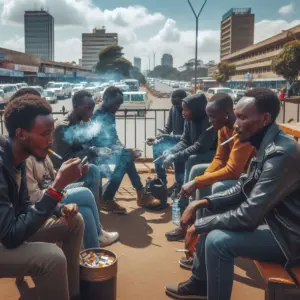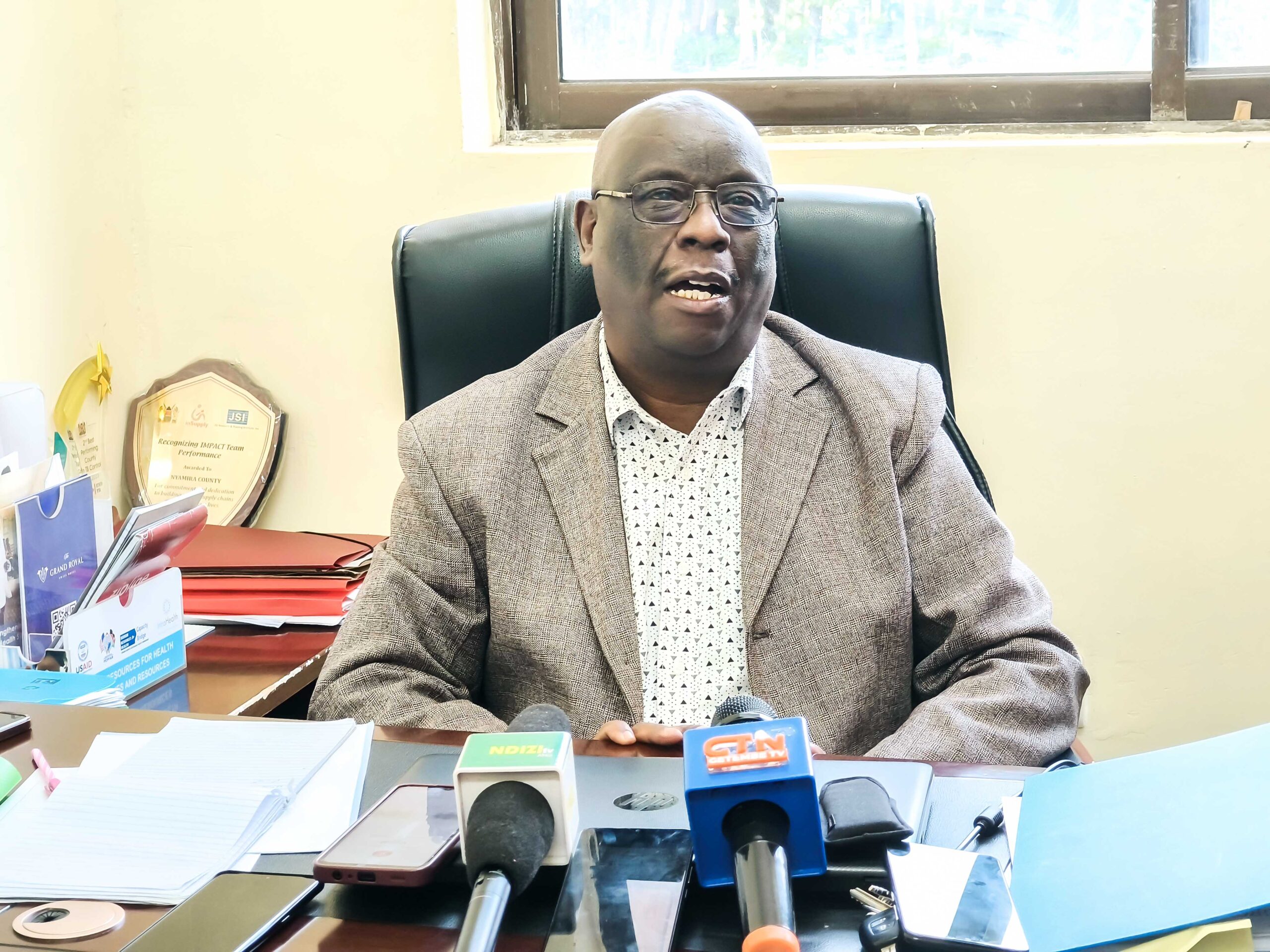
By Arnold Ageta
An activist has filed a petition at the High Court seeking to amend the Tobacco Control Act, 2007 and the Tobacco Control Regulations, 2014 to regulate all nicotine pouches and other tobacco and nicotine derivatives sold in Kenya.
Frederick Bikeri Ochoiki, the petitioner, further seeks to make provision for mandatory plain packaging on all tobacco-derived products, including cigarettes, nicotine pouches, and electronic cigarettes sold and distributed in Kenya.
In his petition filed by his lawyer, Elkana Mogaka, Frederick Bikeri argues that Kenyans’ right to the highest attainable standards of health includes taking every preventive and informative measure possible to ensure Kenyans have access to information about the negative effects of tobacco and tobacco-related products.
“The Ministry of Health observed that despite a decline in tobacco use from 12% in 2014 to 9% in 2022, Kenya now faces new challenges with the rapid proliferation of Novel Nicotine and Emerging Tobacco Products (NNETPs), such as nicotine pouches, vapes, and electronic cigarettes,” read part of the petition.
In this suit, he listed the Cabinet Secretary, Ministry of Health, as the first respondent, the Attorney General as the second respondent, the Tobacco Control Board as the third respondent, and the Communications Authority of Kenya (CA) as the fourth respondent.
He wants the court to issue a permanent injunction banning the sale and distribution of all tobacco and nicotine-derived products online, including ‘shisha’ online or over the internet.
Mr. Bikeri asked the court to make the fourth respondent (CA) effect the ban on the sale and distribution of all tobacco-derived products online, including ‘shisha’ on websites registered or accessible in Kenya.
“Direct all Internet Service Providers in Kenya to suspend, block, and/or remove all websites, social media pages, and online stores in Kenya promoting or marketing tobacco-derived products,” read the petition. “Withdraw or cancel the licenses or permits of all websites, social media pages, and online stores in Kenya promoting or marketing tobacco-derived products.”
The petition also asks the court to order a ban on smoking in designated smoking areas that do not possess notices with health warnings and graphics, and a ban on smoking tobacco and tobacco-related products in public vehicles and taxis under section 33(2) of the Tobacco Control Act, 2007.
He wants the sale of ‘Velo’ nicotine pouches (formerly labeled as ‘LYFT’) and all other nicotine pouches that do not conform to the packaging regulations in section 21 of the Tobacco Control Act, 2007 to be banned. The sale of ‘shisha’ tobacco and shisha pipes in Kenya that do not conform to the packaging requirements set in section 21 of the Tobacco Control Act, 2007 will also be banned.
“An order to the 1st, 2nd, and 3rd respondents to undertake publication of research on the health dangers of the new tobacco and nicotine-derived products to the citizens of Kenya, particularly persons under the age of 18 years, through print, electronic, and other media in line with Article 35 of the Constitution and section 3(i) of the Tobacco Control Act, 2007,” read the petition.
He claims that Kenya signed and ratified the Framework Convention on Tobacco Control (FCTC) and in domesticating the treaty, Kenya proceeded to enact the Tobacco Control Act, 2007 and the Tobacco Control Regulations, 2014.
“Kenya has a duty to implement Article 8 of the Convention in a manner consistent with the objective of the convention as provided in the Article 8 Guidelines for Implementation of Article 8 of the World Health Organization (WHO) Framework Convention on Tobacco Control,” stated the petition.
He wants the government to implement the above article in a manner that is consistent with the objective of the convention as provided in the Article 8 Guidelines for Implementation of Article 8 of the WHO Framework Convention on Tobacco Control.

“That Kenya’s duty to implement Article 8 and in particular to protect against the adverse effects of second-hand smoking is grounded on fundamental human rights and freedoms enshrined in our Constitution,” his petition reads. “Allowing these tobacco products to be displayed, marketed, advertised, and promoted through websites and social media sites without health warning texts and graphics is in breach of Kenyans’ rights under Article 43 to the highest standards of health care.”
In the certificate of urgency filed in court by his legal firm, Elkana Mogaka and Associate Advocates, Bikeri warns that a new health crisis is looming in the country with the introduction of new tobacco and nicotine-derived products by manufacturers.
This follows a long, drawn-out battle between the tobacco industry and the country’s regulators that began in this High Court in 2016 and culminated in the validation of the Tobacco Control Regulations, 2014 by the Supreme Court in 2019.
This new health crisis, he says, covers multiple legal issues. One is that the pre-2010 Tobacco Control Act, 2007 and the Tobacco Control Regulations, 2014 are not adequately able to control new and emerging tobacco and nicotine-derived products.
He blames the Ministry of Health for the emerging new health crisis, saying it legalized, deregulated, and allowed these alternative and emerging nicotine and tobacco-derived products to flood the Kenyan market without compliance with the necessary rules and regulations under both the Tobacco Control Act, 2007 and the Tobacco Control Regulations, 2014.
“Research conducted by non-state actors captured in this petition as well as data by the WHO reveal details of intense lobbying by actors from the Tobacco Industry, particularly British American Tobacco and the 1st respondent (MoH), to deregulate the non-traditional tobacco and nicotine-derived products in Kenya,” read the certificate.
Further, he argues that the actions by the 1st respondent are a gross abuse of executive power, a manifestation of institutional overreach, and a breach of Article 21(1) of the Constitution.
In his affidavit, Mr. Bikeri says that Kenyans, especially the youth, are exposed to these cancer-causing products without adequate information on the health risks associated with their consumption and secondary smoke inhalation.
Upon filing the petition on July 18, 2024, Justice Bahati Mwamuye ordered that the respondents have 14 days from the date of service of the application and the petition to file and serve their responses.
The application will be mentioned on October 7, 2024, for further orders and directions.



